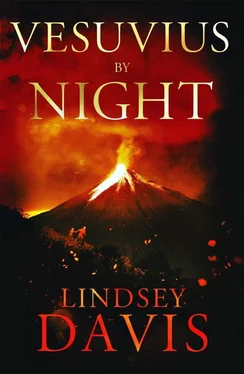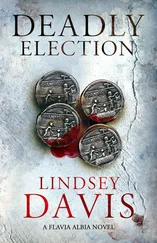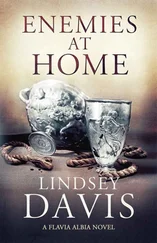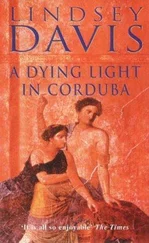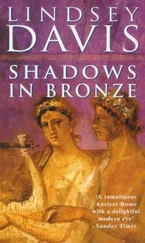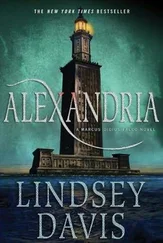Her sudden sense of isolation scared her. Normally people were working, singing, chattering. Wheels creaked. Donkey bells rang. In this unsettling absence of daily clamour, her few chickens in the yard that passed for a garden were audibly agitated. With the children’s help she collected her anxiously fluttering hens, penning them in the coop. While she was outside, she dug up her cache of emergency coins. Dealing with this gave her a last chance to consider what to do. In Herculaneum that day, a woman with small children and no transport had few options.
She put an amulet on each child to avert the evil eye. Subdued, they complied.
‘You may take one toy each. Varius, I said one; bring your chariot. That’s your favourite.’ Though innately disobedient, Varius clutched his miniature quadriga, with its mad-eyed driver; it had moving wheels, well sort of, though Ollia often had to fiddle with eyebrow tweezers to get them to go again for him, when they seized up. Lolliana and Galliana had collected a doll each; Ollia was a conventional mother. Lolliana really yearned for a toy sword but Ollia had pooh-poohed that. Ollius brought his pottery pig moneybox. He liked to persuade his siblings to put any coppers they had into his box through the slot, then would not let them have their money back. The family all joked he would grow up to be a banker.
‘Now everyone use the potty.’
‘Everyone use the potty,’ they mimicked, though without malice. ‘Tinkle, tinkle!’ Chorusing Mother’s instructions had become a new routine lately. When they went on an expedition it was a joke they enjoyed, including Ollia in their glee. To look after this large group of children, she had to be organised; they accepted her methods, were even proud of how she managed.
Now she tried not to let them see how fraught she felt, while they pretended not to notice, which was their way of helping. They lined up and weed as much as they could. She gave each a kiss for being good. Then Ollia took the younger twins each by the hand, while the elder twins went on the outside, grasping their younger siblings’ free fists.
‘Stay together.’
‘Stay together!’
‘Are we going to the seaside?’ For them that meant Oplontis.
‘Wait and see. It’s a surprise.’
How true. She had no idea where they should go. To safety – but where was safe?
Automatically, Ollia set out in the direction she had seen her neighbours hurrying earlier, which was downhill along one of the main roads, towards the shore. Escape by boat. That made her nervous, for even after living near the ocean for almost a decade, Ollia could not swim, nor could these children. Larius, whose oarsman father on the Tiber in Rome had long ago taught him, was himself teaching Marciana, but he never saw enough of the others; he promised, but it never happened. Ollia wouldn’t let them go on boats, except the fishing smack owned by Vitalis when it was safely hauled up on dry land.
By now only a scatter of fugitives still made their way along the streets. She glimpsed a few dark figures down side alleys, but the place was ghostly. The civic area lay behind her, the basilica and theatre. They passed through pleasant residential parts of this well-ordered town, until they reached the area where rich people had commandeered the seaward approach for enormous coastal residences, fabulous second homes with swimming pools, libraries, breezy terraces to walk on while gazing out at grand views. Below those high-end resort properties, a row of vaulted sheds had been hacked into the cliff, sometimes used for laid-up boats, sometimes for storage. Ollia and her now frightened group of infants ended up among a crowd there.
She had done the right thing, clearly. She had chosen what hundreds of others also thought best. Nobody could criticise her. Mothers are so often afraid of being blamed.
Someone said the fishing fleet had gone out at dawn and not returned, but other boats were coming. It was unclear where this information originated, though for the desperate it had a ring of truth. Standing at the choppy water’s edge they looked out to sea and wanted to believe.
Tension was high, yet people stood there patiently. Everyone was frightened, but they did not know what else to do. They would wait to be rescued, and if no boats came by nightfall, they would all shelter in the boatsheds.
A fishing smack rocked in. It was empty, no catch today from those teeming waters. The man said shoals of fish were floating out in the bay, all dead, as if the sea had poisoned them.
The crowd surged forwards, but the fisherman waved an oar aggressively so they pulled back. He took off a small group, people he knew, though when he plied the oars again his boatload seemed to lack direction, he himself rowing with an air of hopelessness.
Herculaneum grew dark very early, and it was very dark indeed. All afternoon people stood waiting, in a kind of ghastly twilight. Nobody spoke much. Behind the town, loud terrible sounds continued from deep within the earth, which seemed no longer solid but boiling. As the mountain kept hurling molten rocks and ash ever skywards, people eventually began to move under cover.
‘When can we go home?’ pleaded a sad, scared child.
‘Not yet,’ said Ollia. She did not know that they might as well have done.
Larius and his daughter fleeing.
Earth tremors shook Pompeii too, with noise and clouds of sulphur. The ash lay so deep, Marciana was tiring by the minute; she had no hope of wading far through the filthy material, which had landed in such quantities that roads showed only as dips, making the mounded walkways featureless deathtraps. The famous Pompeii stepping-stones, the bollards protecting fountains and altars, the worn ruts in the road surface now lay treacherously buried.
Ash and small lapilli kept falling. Doorways were blocked. Balconies held piles of the grey-white stuff. Some frightening alteration meant the debris shower now contained larger lumps of rock. These cinders were three times as big as when the eruption started, and they felt hotter. Larius saw someone struck so hard they fell and could not continue. A child might be killed outright. He was afraid he would be killed and his child left to fend for herself in this nightmare.
The terrible darkness was increasing. Ash coated them so they felt sticky with it, tasting grit, breathing in particles that clogged their lungs. Every few moments they had to shake themselves, to ease their clothes.
This was not going to work. Nobody who tried to escape on foot would make it. They had left it too late. They had too far to go.
Larius started considering whether to take shelter and simply wait for the emissions to finish. He did not like the idea.
They reached the house with the bakery; the baker was just coming out, bringing a panniered donkey. He was about to lock in his others. They were valuable animals. He used them to turn the flour mills or for deliveries. He still imagined he was coming back, to continue with his thriving business.
Frantic, Larius caught at his tunic sleeve. ‘Lend me one! I’ll pay for it. I’ll give you anything…’ He gestured wildly to his struggling daughter. The baker liked her. Marciana looked up at the man, a natural little actress, putting it on. I am young; it is your choice, but please save me, kind soft-hearted sir…
It worked. ‘Have the hinny. You’d bloody well better bring him back for me, Larius!’
Each animal was desperate to leave the stable anyway. They could hear whinnying and kicking. When the loaned beast came crashing out of doors, Larius had to jump to hold him before he bolted. This one was wild, tall though, part donkey, part small horse. Larius put Marciana up in front of him so he could hold her, dug in his heels heartlessly and rode. He rode for some time behind the baker himself, who had also decided to mount his delivery beast, until they became separated, losing each other; in those terrible streets full of dangerous blackness and flying debris nobody would expect a friend to stop and search.
Читать дальше
